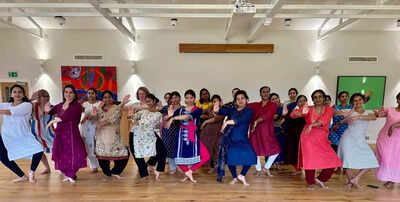ARTICLE AD BOX

The historic halls of Jesus College, University of Cambridge, came alive with the graceful rhythms of Indian classical dance, as internationally acclaimed Odissi exponent Dona Ganguly conducted the university’s first-ever workshop on the ancient art form. In a landmark moment for Cambridge’s cultural calendar, the event introduced students, academics, and art enthusiasts to Odissi—one of India’s eight recognised classical dance styles, known for its lyrical movements, intricate gestures, and deep spiritual philosophy. Participants were guided through foundational steps and expressions, learning about the dance’s 2,000-year-old heritage and its roots in devotion and storytelling. Held as part of the university’s broader push for cultural exchange and diversity, the workshop welcomed individuals from all backgrounds, with no prior dance experience required. For many, it was their first direct encounter with Indian classical dance. “To share the legacy of Odissi at the University of Cambridge is both an honour and a deeply emotional experience,” said Dona Ganguly. “This dance form is not just movement, it is meditation, devotion, and storytelling.
I am heartened to see such enthusiastic participation and openness to Indian culture here. This exchange goes beyond performance, it builds bridges of understanding through art.” The initiative reflects a growing global interest in Indian performing arts and underscores Cambridge’s commitment to fostering dialogue between cultures. Encouraged by the enthusiastic response, organisers are already exploring future collaborations to further introduce Indian classical traditions to the university community. Dona Ganguly, founder of the Diksha Manjari academy and a disciple of the legendary Guru Kelucharan Mohapatra, has dedicated her career to taking Odissi to audiences worldwide. Her mission, she says, is to spread the beauty and philosophy of the dance to new generations across the globe.



.png)
.png)
.png)
















 9 hours ago
5
9 hours ago
5









 English (US) ·
English (US) ·